Disclosure: This article contains affiliate links. We may earn a commission from purchases at no extra cost to you, which helps our travel content.
The first time I visited Denver, I was struck by how the city seems to exist in perfect tension between worlds – urban sophistication against the dramatic backdrop of the Rockies, historic architecture alongside modern design, and that impossibly vast Colorado sky stretching over everything. As someone who typically gravitates toward open plains and grasslands, I was surprised by how quickly Denver's unique visual identity captured my imagination. With my trusty Canon in hand and three days to explore, I set out to discover the most photogenic corners of the Mile High City. What I found was a photographer's playground of contrasting textures, dramatic light, and unexpected compositions – all accessible without breaking the bank. Whether you're wielding a professional setup or simply looking to elevate your Instagram feed, these 12 spots offer something special for every visual storyteller passing through Colorado's capital.
Urban Elevations: Denver's Architectural Canvas
Denver's skyline might not reach the heights of New York or Chicago, but what it lacks in vertical ambition, it makes up for with character and context. The juxtaposition of sleek downtown buildings against the mountain backdrop creates a composition unique to this city.
Union Station stands as my favorite architectural subject, particularly in the golden hour when sunset light warms its cream-colored façade. The grand Beaux-Arts terminal has been beautifully restored, and its interior offers equally compelling shots – from the shuffleboard tables to the constellation-inspired ceiling. For the best exterior composition, position yourself across Wynkoop Street to capture the full symmetrical glory of its façade.
A short walk away, Millennium Bridge offers striking geometric lines that practically beg for creative framing. I spent nearly an hour here playing with different angles, particularly enjoying the perspective from below where the white tensile structure creates dramatic patterns against the blue Colorado sky.
Denver Public Library, designed by Michael Graves, provides a postmodern playground of shapes and colors. The building's unconventional form with its various geometric elements makes for compositions that seem almost like abstract paintings when framed correctly. My advice: visit on a clear day when the building's colorful façade pops against the blue sky.
When shooting architecture in Denver, I've found my wide-angle lens absolutely essential for capturing the full scope of these structures while maintaining their relationship to the surrounding environment. The ultra-wide perspective allows you to emphasize dramatic angles and incorporate more of that famous Colorado sky into your compositions.

💡 Pro Tips
- Visit Union Station at golden hour (about an hour before sunset) for warm, directional light on the façade
- Use a polarizing filter to enhance the contrast between Denver's architecture and the deep blue Colorado sky
- Look for reflections in the glass buildings downtown – they often capture interesting distortions of other structures
Mountain Meets Metro: Scenic Overlooks and Skyline Views
While Denver itself sits on relatively flat terrain, the city offers several elevated vantage points that showcase its unique position at the doorstep of the Rocky Mountains. These locations allow you to capture the compelling narrative of urban development against the dramatic natural backdrop.
City Park provides one of my favorite perspectives of the downtown skyline. Head to the west side of Ferril Lake where you can compose shots with the buildings reflecting in the water. I arrived before sunrise one morning and watched as the first light painted the skyscrapers pink while the mountains remained in shadow – pure magic for a photographer.
Sloan's Lake Park offers perhaps the most iconic Denver photo opportunity. From the eastern shore, you can capture the entire downtown skyline with the mountains rising behind it – a perfect representation of the city's identity. The lake provides a foreground element that adds depth to your compositions. I've found that both sunrise and sunset work beautifully here, though the morning light tends to illuminate the mountains more dramatically.
For a more elevated perspective, Inspiration Point Park in northwest Denver lives up to its name. The panoramic views encompass both the city skyline and the mountain range, giving your photos context and scale. This spot is particularly stunning at twilight when the city lights begin to twinkle against the darkening mountain silhouettes.
When shooting these wider landscapes, a good tripod is non-negotiable. My carbon fiber tripod has been worth every penny – lightweight enough to carry all day but stable enough for those critical long-exposure twilight shots when the city lights and sky need to be perfectly balanced.

💡 Pro Tips
- Visit Sloan's Lake at both sunrise and sunset – each offers dramatically different lighting on the skyline and mountains
- Bring a graduated neutral density filter to balance exposure between bright sky and darker foreground
- Check the weather forecast – partly cloudy days often provide the most dramatic light for skyline photography
Cultural Canvas: Street Art and Urban Textures
Denver's vibrant arts scene spills onto its streets, transforming ordinary walls into extraordinary canvases. As someone who typically photographs vast natural landscapes, I found myself surprisingly captivated by the city's concentrated explosion of color and creativity.
RiNo (River North) Art District stands as the undisputed epicenter of Denver's street art scene. Walking through the alleyways between Larimer and Walnut Streets feels like strolling through an open-air gallery that changes with each visit. What struck me most was how the murals interact with the industrial architecture – massive paintings crawling up old brick warehouses, creating a compelling dialogue between past and present. I spent an entire afternoon here, shooting both wide contextual shots and tighter detail frames that highlight the artists' techniques.
The Denver Central Market area offers particularly photogenic concentrations of murals, with the added bonus of great coffee shops where you can recharge between shooting sessions. I found myself returning multiple times as the changing light throughout the day dramatically transformed how the colors appeared in my photographs.
For something completely different, the Dairy Block downtown offers more polished but equally Instagram-worthy art installations. The alleyway features suspended art pieces that create interesting patterns overhead – look up for unique compositions that most visitors miss.
When photographing street art, I've found that having a versatile lens is crucial. My zoom lens rarely leaves my camera in these environments, allowing me to quickly switch between environmental shots and detailed close-ups without changing lenses. The fast aperture also helps when shooting in shadowy alleys or as daylight begins to fade.
Don't forget to research the artists when possible. Many murals have Instagram tags or signatures that allow you to credit the creators when sharing your photos – something I consider essential respect for the artists whose work we're capturing.

💡 Pro Tips
- Visit RiNo on weekday mornings for street art photos without crowds
- Look for interesting juxtapositions between murals and people passing by – the scale often creates compelling compositions
- Include some environmental context in your shots rather than just tight frames of the artwork
Historic Charm: Denver's Architectural Heritage
While Denver embraces modernity, the city has preserved pockets of its frontier past and Victorian splendor. These historic districts offer rich visual storytelling opportunities that connect visitors to the city's evolution from mining town to modern metropolis.
Larimer Square represents Denver's original main street, now beautifully preserved with Victorian buildings housing upscale shops and restaurants. The block comes alive photographically after dark when strings of lights create a canopy overhead. I captured some of my favorite Denver images here using a longer exposure to create light trails from passing cars while keeping the historic facades sharp. The contrast between the warm-toned historic buildings and cool modern skyscrapers visible at the end of the street creates a perfect visual timeline of the city's development.
16th Street Mall offers a pedestrian-friendly corridor through downtown with plenty of historic elements amid the more modern developments. The D&F Tower (Daniels & Fisher Tower) stands as a particularly photogenic landmark – its Italian Renaissance design and prominent clock face make it an ideal focal point for compositions that blend old and new Denver.
Lower Downtown (LoDo) contains the largest concentration of historic buildings in the city. The restored warehouses with their exposed brick and vintage signage create a textural feast for photographers. I found myself drawn to the details here – ornate cornices, ghost signs painted on brick walls, and vintage architectural elements that tell stories of the city's commercial past.
Molly Brown House Museum in Capitol Hill represents the residential elegance of Denver's mining boom era. The Victorian mansion offers guided tours, but even exterior shots capture the ornate architectural style that defined Denver's wealthier neighborhoods at the turn of the century.
When shooting these historic areas, I often switch to my prime lens for its exceptional sharpness and ability to handle the challenging lighting conditions of interior/exterior transitions. The fast aperture also allows for beautiful separation between architectural elements when shooting details.

💡 Pro Tips
- Shoot Larimer Square both during the day and after dark for completely different moods
- Look for frames within frames – historic doorways and windows often create natural compositions
- Use leading lines of historic streets to draw the viewer's eye to architectural focal points
Natural Escapes: Urban Parks and Gardens
Denver's commitment to green space offers photographers beautiful natural settings without leaving the city limits. These areas provide a refreshing counterpoint to the urban photography and showcase Denver's outdoor-oriented lifestyle.
Denver Botanic Gardens stands as my absolute favorite natural location in the city. The 23 acres contain distinct themed gardens that transport you from Japanese serenity to desert xeriscape within minutes. As someone who typically photographs vast landscapes, I found the gardens challenged me to find more intimate compositions. The Monet Pool with its water lilies offers stunning reflection opportunities, while the Ornamental Grasses Garden reminded me of the prairie landscapes I typically gravitate toward. Visit in early morning when the light is soft and the gardens are less crowded.
Washington Park (known locally as "Wash Park") provides a more expansive green space with two lakes, flower gardens, and tree-lined paths. The park's 155 acres offer enough variety for an entire photography session. I particularly enjoyed shooting the boathouse reflected in Smith Lake, using the mountain backdrop to create a composition that feels quintessentially Denver. The formal flower garden provides vibrant foreground elements against the city skyline in the distance.
Cheesman Park offers a more manicured aesthetic centered around its neoclassical pavilion. The columned structure makes for striking architectural shots, particularly at sunrise when the warm light illuminates the white columns. The surrounding open lawn and formal gardens create leading lines that naturally draw the eye to the pavilion in compositions.
Confluence Park, where Cherry Creek meets the South Platte River, provides a unique urban-natural interface. The kayak chutes create opportunities for action shots of outdoor enthusiasts, while the pedestrian bridges offer elevated perspectives of the waterway with the city skyline beyond. This location perfectly captures Denver's blend of urban development and outdoor recreation.
When photographing these natural areas, I rely heavily on my polarizing filter to enhance the natural colors and reduce glare on water surfaces. The difference in vibrancy and contrast, particularly in foliage and sky, makes this simple accessory worth its weight in gold for nature photography in bright Colorado sunlight.
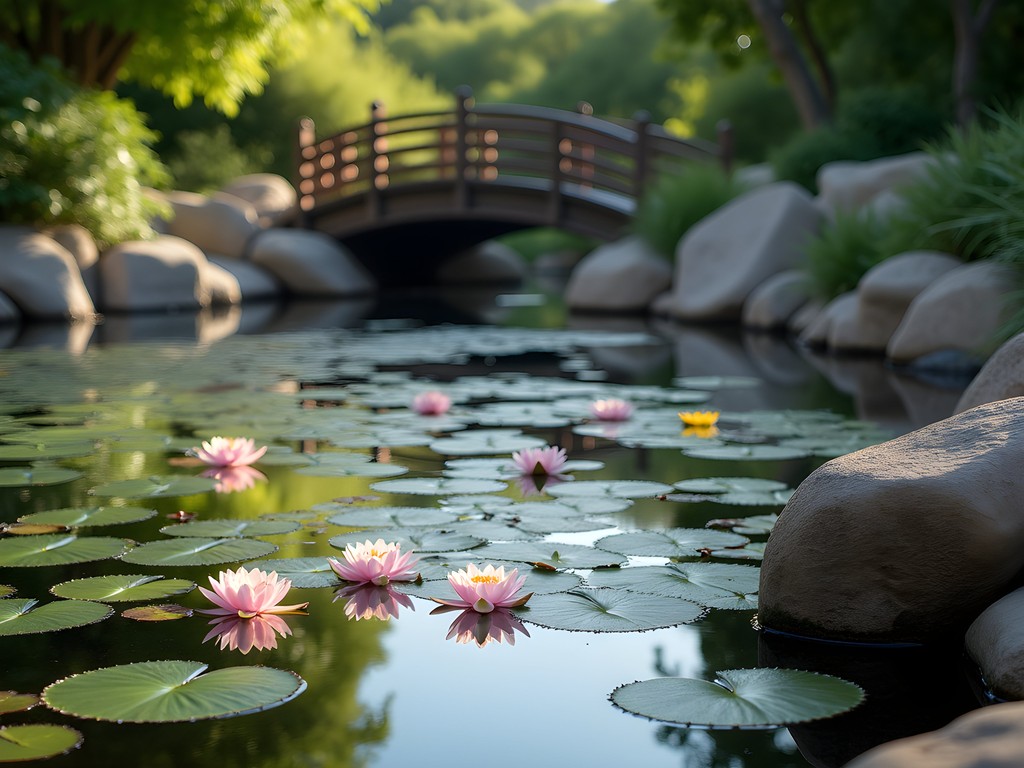
💡 Pro Tips
- Visit Denver Botanic Gardens on weekday mornings to avoid crowds in your shots
- Use a longer lens to isolate interesting plant specimens against blurred backgrounds
- Incorporate people enjoying the parks to add scale and storytelling elements to your landscape images
Beyond the Ordinary: Unique Denver Photo Opportunities
Beyond the obvious landmarks, Denver offers several unconventional photo opportunities that can add unique images to your collection. These locations might not make every tourist itinerary, but they're gold mines for photographers seeking fresh perspectives.
International Church of Cannabis in the Baker neighborhood features an extraordinary ceiling mural by artist Okuda San Miguel. The psychedelic sacred geometry transforms what was once a traditional church into a kaleidoscopic wonder. Check their website for visiting hours, as they sometimes restrict photography to certain times. The exterior's colorful façade also makes for compelling street photography.
Meow Wolf's Convergence Station offers an immersive art experience that defies categorization. While it's primarily an interactive installation, the fantastical environments create unparalleled photo opportunities. The surreal lighting and otherworldly scenes challenge conventional photography techniques – I found myself experimenting with longer exposures and intentional camera movement to capture the essence of the experience rather than literal documentation.
Red Rocks Park & Amphitheatre sits just outside Denver proper but deserves inclusion for its extraordinary geology and architecture. While many photograph the famous amphitheatre itself, I found the surrounding trails offer equally compelling compositions where the massive red rock formations frame views of the distant plains. Visit at sunrise when the rocks glow with intense color and long shadows create dramatic patterns.
The Big Blue Bear (officially titled "I See What You Mean") peering into the Colorado Convention Center has become an iconic Denver image. Rather than simply shooting the 40-foot sculpture head-on like most visitors, try positioning yourself inside the convention center to capture the bear looking in, with the city reflected in the glass behind it.
Denver Central Library's Western History Collection contains fascinating historical photographs of Denver and the West. While you can't photograph the original archives, the inspiration gained from studying these historical images can profoundly influence how you see and capture the modern city. I spent an afternoon here before hitting the streets, and it completely transformed my perspective on Denver's urban landscape.
For these diverse environments, having a versatile camera body that performs well in varied lighting conditions is essential. I've found my mirrorless camera perfectly suited to the challenge, with its exceptional dynamic range handling everything from the dark interiors of Meow Wolf to the high-contrast sunlight at Red Rocks.

💡 Pro Tips
- Visit Red Rocks at sunrise when you'll have fewer crowds and more dramatic lighting
- Experiment with intentional camera movement and longer exposures at Meow Wolf to capture the essence of the experience
- Look for unique angles of common subjects – get low, shoot through objects, or find elevated perspectives
Final Thoughts
Denver's visual identity exists at fascinating crossroads – where prairie meets mountain, historic meets modern, and urban meets wild. As someone more accustomed to photographing open plains and horse cultures, I found the Mile High City offered unexpected photographic riches that challenged and expanded my creative perspective. The twelve locations I've shared barely scratch the surface of Denver's photogenic potential, but they provide a solid foundation for your own visual exploration. What makes Denver truly special for photographers is its accessibility – most of these locations are within easy walking or public transit distance, making it ideal for a budget-friendly weekend photography adventure. Whether you're wielding a professional camera or simply your smartphone, Denver rewards those who take time to observe how light plays across its varied textures and landscapes. So pack your camera, charge your batteries, and prepare to see the Mile High City through a new lens.
✨ Key Takeaways
- Denver offers exceptional photography opportunities across architectural, natural, and cultural subjects
- Early morning and golden hour provide the most flattering light for both urban and landscape photography in the city
- Many of Denver's most photogenic locations are free or low-cost, making it an ideal destination for budget-conscious photographers
📋 Practical Information
Best Time to Visit
Late spring (May-June) or early fall (September-October) for comfortable temperatures and dramatic skies
Budget Estimate
$300-500 for a weekend (excluding flights)
Recommended Duration
2-3 days
Difficulty Level
Easy
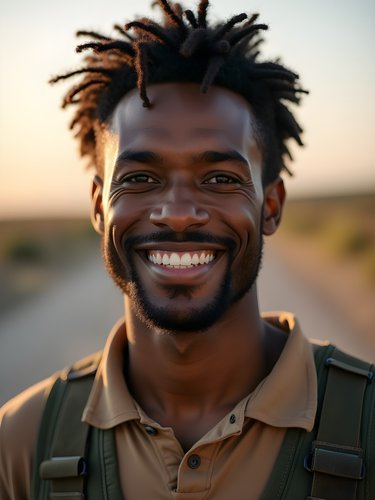


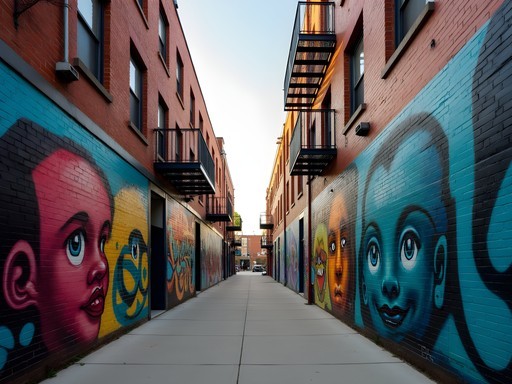


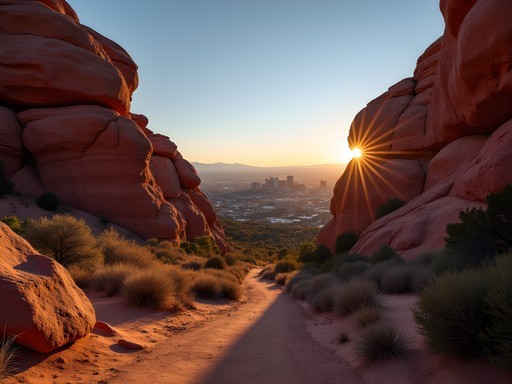


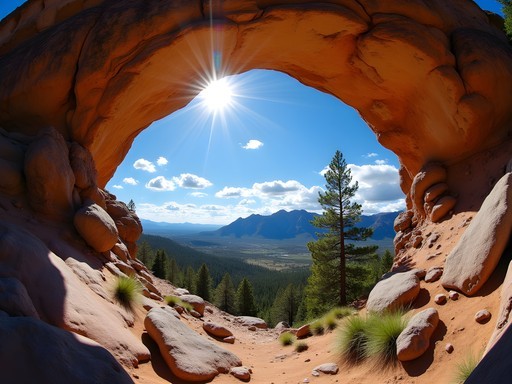
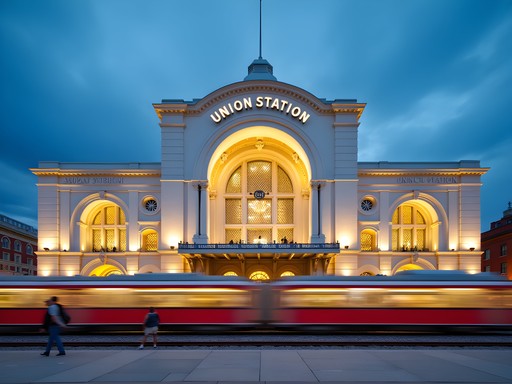
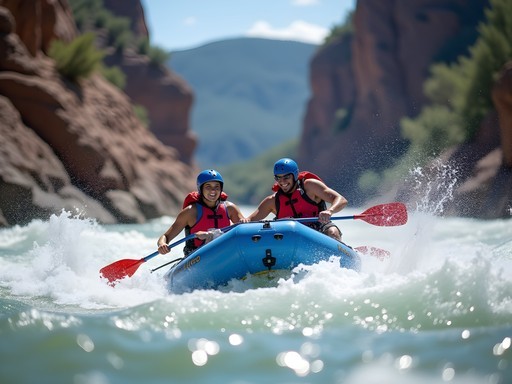
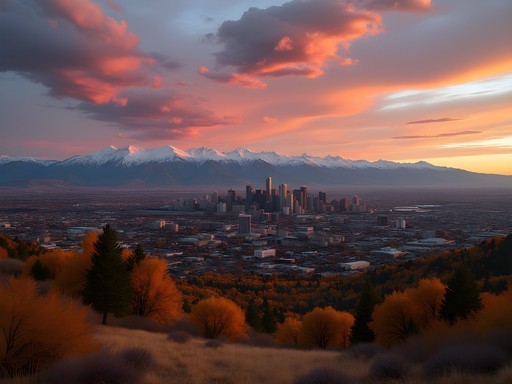
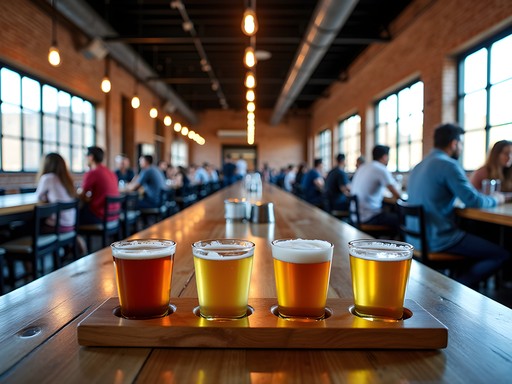
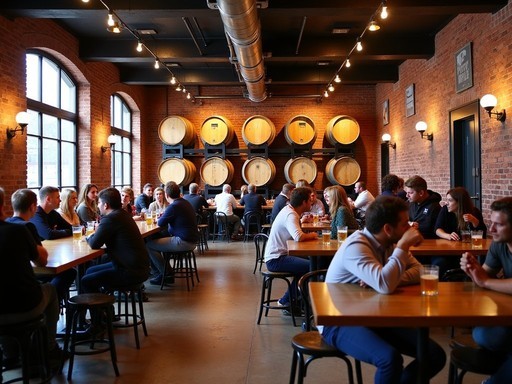
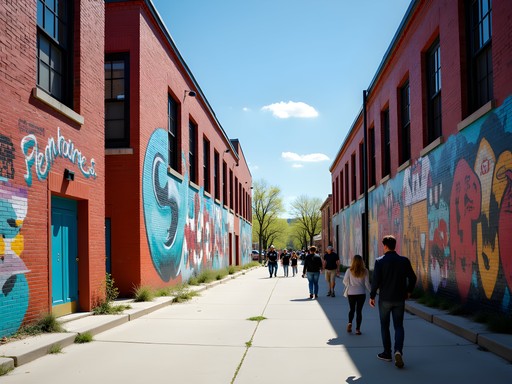
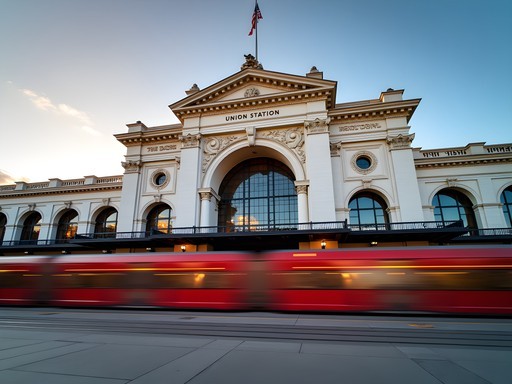
Comments
Jean Wells
Preston, excellent composition work throughout this guide. As someone who's photographed mountain cities from Innsbruck to Kathmandu, Denver presents a unique challenge with its elevation and light quality. The atmospheric clarity at 5,280 feet creates sharper contrasts than sea-level cities, which you've captured well in your architectural shots. One tip for readers: the thin air means UV filters are essential for digital sensors. I found the juxtaposition of Victorian-era Larimer Square against the modern skyline particularly compelling – it reminds me of parts of Sapporo where historic preservation meets contemporary urban planning. Did you find the low humidity affected your lens performance at all during early morning shoots?
startime
wow didnt know about the UV filter thing, good to know!
happymood
Love this!! The RiNo street art district is so underrated. We spent like 3 hours just walking around taking photos
startime
What time of day did you shoot the skyline views? Planning my trip for March!
happymood
Golden hour is amazing there! I went last spring and the light on the mountains around 6-7pm was incredible
startime
Thanks! Definitely doing that then
Sage Dixon
Preston, you nailed the essence of Denver here! One hidden gem I'd add for the photographers out there is the pedestrian bridge at Millennium Bridge - especially at blue hour when the city lights start coming on. The perspective of 16th Street from up there gives you this perfect leading line into downtown. And for those wanting to capture the Rockies backdrop, the rooftop at The Source Hotel gives you a clear view without having to drive out of the city. Denver really is that rare place where urban photography and landscape photography collide in the best possible way.
adventurerider
Denver's architecture really surprised me when I visited. The contrast between the ultra-modern art museum and those Victorian buildings in Larimer Square makes for some incredible photos. My tip: don't just look at the obvious landmarks - some of my best shots came from the alleyways between buildings downtown where you get these perfect light shafts in the morning. Also, Red Rocks is worth the short drive even if there's no concert - the amphitheater against those massive red formations is just stunning at sunrise.
tripseeker
Those shots of the street art are amazing! Which neighborhood was that in?
journeyfan
That's in RiNo (River North Art District). Tons of murals there!
starguy
Are these spots easily accessible by public transportation? Not renting a car on my trip.
adventurerider
Most of them are! Denver's light rail is pretty good and you can grab rideshares for the rest. We did the whole city without a car last summer.
starguy
That's great to hear, thanks!
Sarah Powell
Excellent guide, Preston! I'd add that timing is everything for Denver photography. The golden hour light hitting those historic buildings in LoDo creates this amazing warm glow that contrasts beautifully with the cool mountain backdrop. I spent three days photographing just Union Station at different times of day and got completely different moods in each shot. For anyone planning a photography trip, I'd recommend bringing a wide angle lens to capture both the architectural details and mountain vistas. Denver really is a photographer's playground.
journeyfan
Just got back from Denver last week and hit up several of these spots! The street art in RiNo was definitely my favorite - changes constantly so even if you've been before, worth checking out again. We also loved Confluence Park at sunset, the light hitting the buildings downtown with the water in the foreground made for some killer shots. Missed a few on this list though, guess I need to go back!
vacationtime
Great post! I'm heading to Denver next month - which of these spots would you say is most worth visiting if I only have one day?
Sage Dixon
Not the author but I'd recommend hitting RiNo for street art and then catching sunset at one of the skyline viewpoints. You get a great mix of Denver's urban culture and natural beauty that way!
vacationtime
Thanks Sage! RiNo was on my list already so that's perfect.
Venture X
Premium card with 2X miles, $300 travel credit, Priority Pass